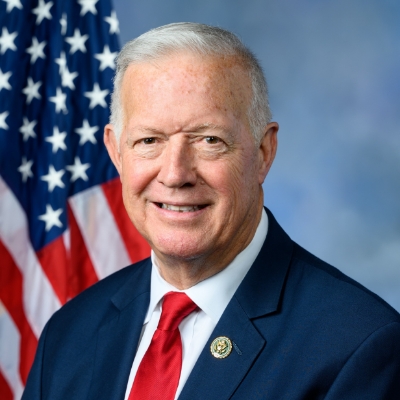- Home
- About
- Contact
- Services
- Art Competition
- Community Project Requests
- Congressional Commendations
- Flags
- Assistance with a Federal Agency
- Internships
- Military Academy Nominations
- Passports
- Presidential Greetings
- Tours and Tickets
- The Congressional Award
- Grants
- Water Resources Development Act 2026
- Additional Services and Resources
- Media
- Legislation
- Issues
- Resources
 U.S. REPRESENTATIVE
Randy Weber
Proudly Serving Texas' 14th District
U.S. REPRESENTATIVE
Randy Weber
Proudly Serving Texas' 14th District
Press Releases
Rep. Weber Introduces U.S. Leadership in Space Act
Washington,
January 13, 2022
WASHINGTON D.C. – On Thursday, January 13, 2022, Congressman Randy Weber (R-TX-14), introduced H.R. 6391, the U.S. Leadership in Space Act of 2021. “We are at a critical juncture in our nation’s history. It is important that Congress does the job it was intended to do: authorize, and then subsequently fund, critical government programs. Especially those that strengthen national security and scientific discovery. “Space is an important domain for several reasons. As any military leader will tell you, whoever occupies the high ground has the strategic advantage. Continued inaction by Congress to adequately address the growing threats posed by an expanding uncontrolled debris field in earth’s orbit; the irresponsible and reckless anti-satellite missile tests by Russia that recently endangered the lives of astronauts (and cosmonauts) aboard the International Space Station (ISS); and the years of intellectual property theft, critical supply chain control, and other nefarious practices by China, require that Congress and this Administration come together to pass meaningful legislation that will ensure continued American preeminence in space. “This legislation is not a replacement for a full NASA authorization bill, because that critical task is the duty of the entire Science Committee here in the House. This bill jumpstarts that long overdue conversation and calls on the National Space Council to report on foreign threats to the U.S. Commercial Space sector, and recommend actions the Congress can take to protect and promote its success. “Additionally, this legislation would establish Johnson Space Center (JSC) as the Artemis program management office. Since its creation in 1961, JSC remains NASA’s lead center for human spaceflight, serving as the global hub for managing and integrating complex activities associated with keeping astronauts alive and working in space. JSC not only led this charge to the Moon during the Apollo missions, but also subsequently served as the location for the Space Shuttle, ISS, Constellation, Orion, and Gateway programs. “Important to U.S. leadership in a future commercial low-earth orbit (LEO) market, and in preparation for the nation’s deep space exploration activities and scientific endeavors, my bill extends ISS operations to 2030 and ensures that no gap exists in U.S. access to LEO, while also allowing for a seamless transition from government owned and operated platforms to a commercial successor. Further, my bill instructs NASA to pursue two or more spacesuit design-and-development agreements with industry, understanding that competition is the driver of innovation and lower costs over time. “Eventually, when the Space Station is safely retired at the end of its operational life, the first-ever privately funded commercial station will have operated for years alongside the ISS, expanding capabilities for scientific discovery and commercial activities for the U.S. and our allies, while allowing NASA to focus its attention and resources toward the Moon, Mars, and beyond. I am proud to introduce this critical bill once again, and I hope my colleagues on both sides of the aisle will agree to act now to secure our collective future in space,” said U.S. Rep. Randy Weber. “Bay Area Houston Economic Partnership (BAHEP) supports the extension of the International Space Station (ISS) operations to 2030 included in Congressman Weber’s bill, the U.S. Leadership in Space Act of 2021 (H.R. 6391). ISS is important for scientific discovery and will continue to be crucial to commercial development in low-Earth orbit. BAHEP also supports designating Johnson Space Center (JSC) as the Artemis program management office for the coming manned missions to the moon and beyond. JSC has a long history and unique skillset when it comes to all components of human spaceflight and mission ops,” said Bob Mitchell, President of Bay Area Houston Economic Partnership.”
|
